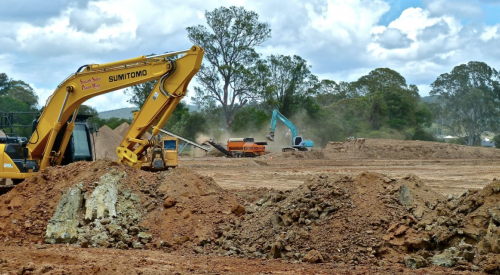|
|||||||||||||||||||||
With Las Vegas-based Astoria Homes hitting the Giants list at No. 116, up from 200 last year, president Tom McCormick thinks he has hit on a growth formula that’s perfect for the Las Vegas market: Deliver quality homes at the best price to a market segment that’s getting left out by everyone else.
“As median price moves up, we focus on hitting those price points that have been vacated,” he says. “Those making the median income of $40,000 to $45,000 per household can no longer afford the median new home. We talk a lot in our company about how what we do is important. If it weren’t for this type of product, the people buying these homes wouldn’t be buying a home of this quality — or any home at all. We believe fundamentally that putting people in their own homes is not only good for them, but it’s good for the neighborhoods we build in.”
Examples include Astoria’s sold-out Silverado Lane and its next iteration, Silverado Place, both in the same master-planned community in Las Vegas. Detached single-family homes with square footages from 1,140 to 1,300 sell from $110,000 to $119,000. The median price for a single-family detached new home in Las Vegas was a record $175,664 in 2001, according to the Meyers Group.
Astoria went from closing 44 homes in 1995, its first year, to 819 in 2001 — almost double its closings in 2000. Astoria also doubled its revenue last year, to $159.2 million. So with most sales prices hovering in the low $100,000s (Astoria also builds communities of more expensive homes, with its average overall sales price in 2001 at $200,000), what’s McCormick’s secret to success?
In the competitive, price-sensitive Las Vegas market, he says, Astoria’s company culture is geared toward one thing: price per square foot. “It isn’t as simple as just flat-out the lowest price and the lowest spec,” McCormick says. “It is the old, ‘What offers the most for your money? What can we do to make the buying process easier and the options selection easier, keeping our prices low every step of the way?’”
One way is by letting construction, rather than sales, drive company operations. A rigid, preset schedule of phases and releases means McCormick knows exactly what’s coming down the pike, down to each lot and home. The sales team’s job is to get homes sold according to schedule.
The other way to offer high value and low price is to tightly control buyers’ selections. “Unlike some of our competitors, we have very few options, and they’re really geared to what can we do most efficiently,” says McCormick, who gives the example of ceiling fans. Astoria can’t beat places such as The Home Depot on price or selection, so it doesn’t offer ceiling fans. What Astoria does sell is the pre-wired fan outlet, “but if you buy it from us, you have to buy it for every room in the house,” McCormick says. “So our electricians know that if the story is ceiling fan pre-wires, there’s no dispute over where in the ceiling it goes or which room it goes into.
“At our price points and with the things we’re doing, customers are willing to make that compromise because it’s worth it to them.”
| Tom McCormick, president |
Even in more expensive homes, Astoria’s customization policy is the same, and it’s communicated to buyers up front. “If they’re looking for a high level of customization in their 6,000-square-foot home, that’s great, but we can’t sell them that home for $350,000,” McCormick says. “They have to go to our competition down the street that might have it for $400,000 or $425,000 instead. We will gladly recommend them if that’s where their priority lies. We’re not going to try to squeeze a square peg into a round hole.”
McCormick wants to fine-tune his operation before even thinking about venturing outside Las Vegas. Besides, he doesn’t see that market slowing at all. Astoria isn’t slowing either. While closings in 2002 will drop because of holdups with property developments and infrastructure, McCormick expects about 1,300 closings in 2003, with the company’s average home price as low as $160,000.












